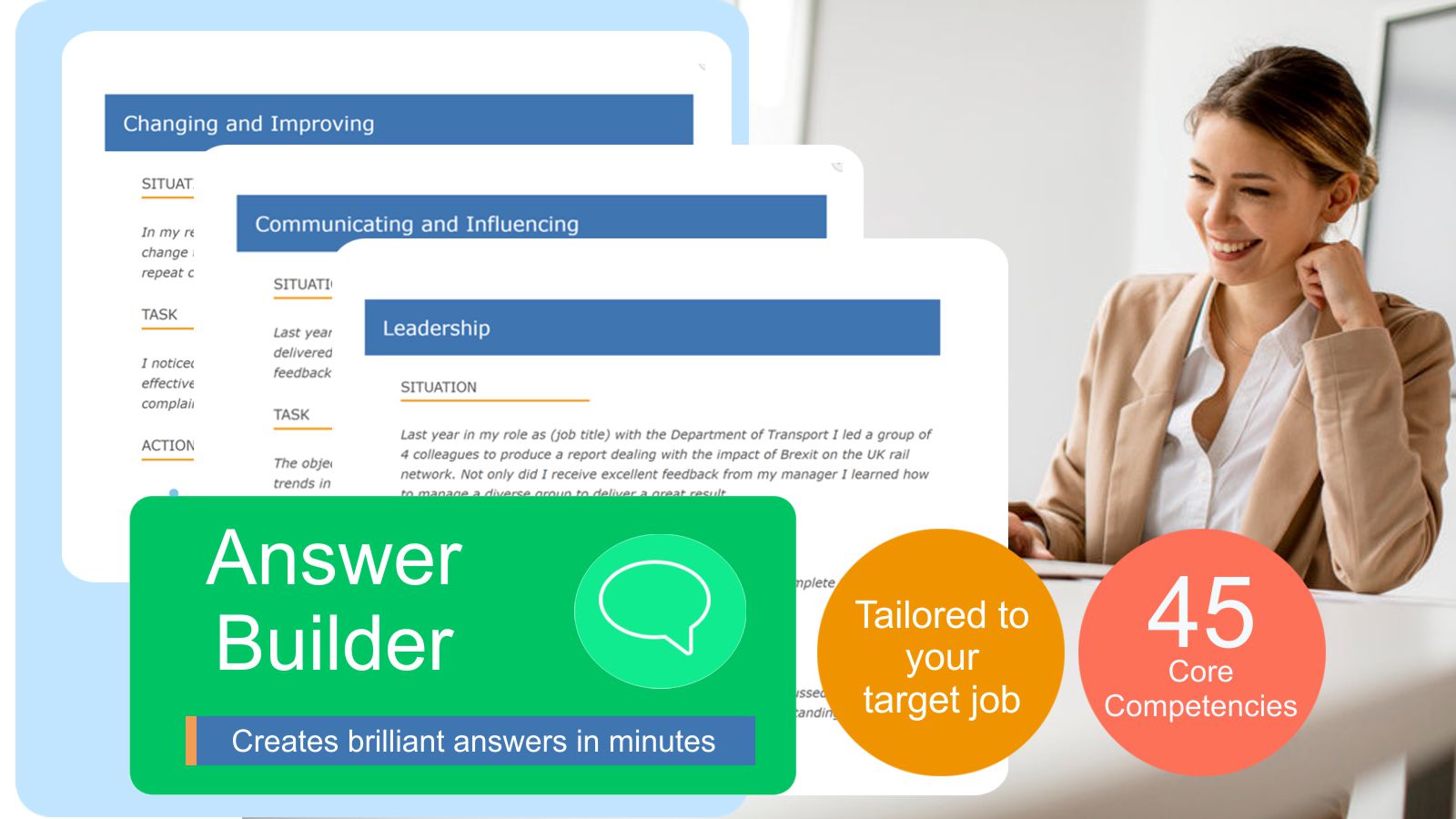
Ready for the next step up in your career and want to be sure of getting it right? Here are our top tips to help you make that move successfully whether internally or in a whole new direction.
Learn effective strategies to accelerate your career growth. Discover how to build a professional network, enhance your skills and seize opportunities to start or advance your career.
Whatever stage of your career path you are on, there are always things you can do to boost your job prospects and enhance your chances of getting onto the next step of the career ladder.
How to make your next career move truly successful
You can do several things to better your career and job prospects. This starts with careful planning and setting career goals.
Getting the basics right are key, from the simple task of refreshing your CV to changing your approach to job searches and interviews right through to enhanced career progression once you have landed your dream job.
Brilliant Answers Created For You

Imagine having perfect answers for your applications and interviews? And all created for you in just a few clicks?
Here are our top guidelines for taking that next step in your career path and making sure it is successful.
Set Clear Career Goals
You need to know what the next step in your career path looks like. Otherwise, you run the risk of making a move which is not suitable, perhaps a job choice you come to regret.
Firstly, define what the next stage in your career looks like for you. Setting clear career goals involves identifying your long-term aspirations and breaking them down into achievable objectives.
Start by assessing your current skills and interests, envision what success looks like for you, and outline specific, measurable steps with realistic timelines to guide your career trajectory effectively.
Identify your career and work- life priorities
If you understand your priorities right at the beginning of your work life, it becomes easier to cut the wheat from the chaff, meaning you can discard the things in a group that are good or important from those that are not.
Define your rewards, incentives, motivations, and finances to determine your career or job needs. Work out which environment suits you best (within an office-based team, outdoor working, or working from home); this consideration will help you decide how you work best and what the ideal culture or environment is for you to excel in.
Plan the perfect career move
Effective planning is all about reflection, taking what you’ve learnt (even at the beginning of your career journey) and using it to plan for your future. Planning along with an actual plan is the best way to manage your career and quickly boost your career prospects.
Start with the following questions:
- Where you would like to be in one, five and ten years’ time?
- What plans have you put in place to achieve your goal?
- Have you incorporated a financial plan into your career plan?
- Do you manage savings and debts effectively?
- Do you have a fallback option if you lose your job?
- Have you planned for your retirement?
- Do you update your professional network if you need it?
- Do you keep on top of industry trends so you can pivot effectively if necessary?
Enhance your skills and knowledge
A new post or career will most likely require additional skills. For example, when going into management you will need to be able to deal with recruitment, building and motivating teams.
These are skills you will learn on the job but even better if you can show that you have some experience before taking on the promotion. This will boost your chances of getting your job application through the selection process.
- Identify the skills and expertise required for advancement in your chosen field. Identify gaps on your CV and fill them by a combination of experience within your work such as taking on new tsk with added responsibility or activities.
- Outside of work – consider volunteering or mentoring where you can acquire these supplementary and essential skills.
- Finally, pursue relevant training, certifications, or higher education to enhance your qualifications.
Build and expand your professional network
Never dismiss networking; professional networking is a chance to learn, and it’s a free tool, a powerhouse of free information that you can use to your advantage. Go to industry events and network like crazy; the more people in your desired field you know will increase your chances of getting noticed.
Remember the quote (be courteous to everyone you meet on the way up) and use networking as a block builder for your personal branding.
Seek feedback from colleagues and others
Regular feedback can guide your professional development.
Actively seeking feedback from colleagues and others is a crucial strategy for career advancement.
Constructive criticism provides a different perspective, helping you identify areas for improvement and reinforcing your strengths. Engaging with a diverse range of individuals, including peers, supervisors, and mentors, broadens your understanding of how your work is perceived and the impact you make within your team.
This process fosters self-awareness and professional growth, guiding you to make strategic adjustments and informed decisions about your career path. Regular feedback not only improves performance but also enhances your ability to adapt and thrive in a competitive work environment.
Take on a mentor to boost your career prospects
Seek a mentor who can provide advice, help navigate career challenges, and push you towards your goals.
Securing the right mentor, ideally one in your chosen area can significantly enhance your career prospects by providing you with guidance, knowledge, and access to an extended network.
Mentors offer personalised advice drawn from their own experiences, helping you navigate challenges and avoid common pitfalls. They can introduce you to influential contacts, recommend you for opportunities, and endorse your capabilities.
By observing their approach to professional situations, you gain insights into effective practices and behaviors in your field.
Enhance your personal branding and social media presence
Personal branding is related to who you are as a professional and harks back to our starting point—of being clear about your career goals.
Using social media for career promotion involves creating a professional online presence that showcases your skills and accomplishments. Start by updating your LinkedIn profile with detailed descriptions of your job roles, achievements, and any relevant projects.
Engage actively by sharing industry-related content, participating in discussions, and connecting with professionals in your field. Twitter and Facebook can also be used to follow influential figures, companies, and professional groups.
Regularly posting insightful comments and articles can establish you as a thought leader.
Revise and refresh your key achievements
Keep a record of your accomplishments, projects you’ve led, and any positive feedback from colleagues or supervisors. This documentation will be crucial during performance reviews or job interviews as evidence of your contributions and capabilities.
Update your CV and personal statement
It may seem obvious, but it’s vital to have a complete and up to date CV ready to send to recruiters or prospective employers, especially as these days, most CVs and job applications are scanned for keywords rather than read manually.
Here are essential CV update tips that will secure an interview.
1. Current role first: If you have taken on a new role or graduated since your last CV update, update your CV to reflect this and include a section reflecting your responsibilities and, more importantly, your achievements to date.
2. Update your profile: Update your profile at the top of your CV to reflect your track record and the kinds of roles you are now targeting. Make sure you use the right keywords; for example, if you’re looking for a career in nursing, say so, or a job in tech, mention the related industry achievements. Don’t expect a recruiter or prospective employer to guess or piece the information together; they won’t – your CV will be piled, and you won’t hear from them.
3. Clear career aspiration: Your career ideas may have changed since you last updated your CV. Ensure your CV is well-targeted and the content covers all relevant achievements or transferable skills. It’s important to reflect and tailor the language and terminology used on your CV (without using jargon) to the target field and preferred employers.
4. Edit for conciseness: Ideally, your CV should be no more than two pages long (apart from those seeking academic roles). Every time you add to your CV, be prepared to edit out older jobs (take out that paper round or bar job, for instance), and be selective about the information you keep on your CV. Most people have more than one CV when they start out, designed to attract employers in different but related fields. By cutting out unnecessary details, you have more space for what’s relevant.
5. Volunteering and interests: Add voluntary roles and interests that highlight your transferable skills and personal qualities; it doesn’t matter if they don’t match the role you’re hoping for. It’s the transferable skills and proving you’re a well-rounded individual that’s important here.
Practice and update your interview skills
Practice your interview skills, research the questions, build your answer before interviews. Know your worth and be prepared to negotiate a top salary. Be prepared to be proactive and never leave any possible opportunity to chance.
Finally, remember confidence is key
Don’t be backward in coming forward; be confident but not arrogant and ask for feedback on how you can improve. Expect some knockbacks, and don’t be afraid to fail – failure is a fantastic learning curve, a valuable lesson you can reflect on that costs nothing, especially if you accept all the feedback (good or not so good) with good grace and use it to improve or fill any learning gaps. Persevere, ask questions and knock on doors; your efforts will be rewarded (eventually).


